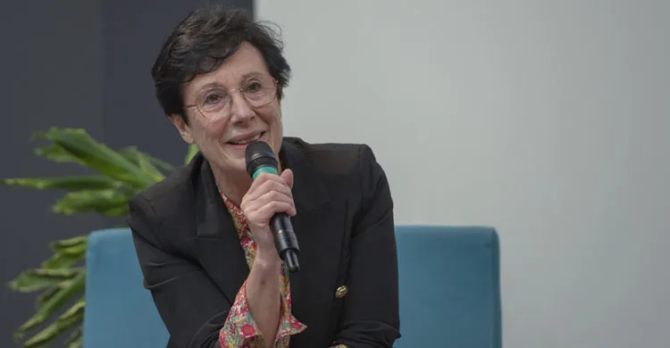 Interview with Laurence Tiennot-Herment, President of AFM-Telethon and Institute of Myology Association.
Interview with Laurence Tiennot-Herment, President of AFM-Telethon and Institute of Myology Association.
Why is muscle a public health issue?
As patients with neuromuscular diseases know all too well, muscles play a vital role in motor, respiratory and cardiac functions. But they are also affected in many other diseases such as cancer or diabetes. In other words, the state of the muscles is an indicator of the state of health for everyone. Moreover, throughout life, muscles must be preserved and trained because they help fight against various diseases such as cardiovascular disease, prevent others such as osteoporosis, but also avoid musculoskeletal disorders, maintain memory, fight against the effects of aging … And they are an essential reservoir of energy. Muscles are indeed a public health issue and must be recognized as such.
In this context, the recognition of myology, the science and medicine of muscle, is now a necessity?
Thanks to the work on the diseased muscle that has been promoted and supported for many years by our association, by the Institute of Myology and by other teams throughout the country, knowledge has increased. Moreover, we are living through a real turning point with the first successes of innovative treatments for particularly serious muscle diseases and an explosion in the number of clinical trials. It is now clear that muscle alone is a model organ, a source of multiple therapeutic innovations that can be combined to increase their effectiveness. We are in the middle of a snowball effect.
Because of its predominant place in the human body and its transversal role, the muscle is at the heart of a discipline, myology, which should be taught as such and recognised. It cannot be confined to a single speciality such as neurology, for example, because it is at the interface of different specialities and its teaching must be nourished by this multidisciplinarity. Moreover, muscle deficiencies can have different origins such as ageing, chronic illness, heavy treatments….
Preservation of muscle activity is also an issue in cancer recurrence. Muscle medicine should therefore be made more democratic. It must be more widely disseminated so that, in the future, there will be more medical and scientific experts in muscle: neuro-myologists, of course, but also cardio-myologists, onco-myologists, geronto-myologists, etc. This discipline must be taught to all doctors and carers, but it must also be recognised and have dedicated commissions in medical and other research organisations.
How can the creation of a Foundation of Myology contribute to this recognition?
Ever since the creation of our Institute of Myology in 1996, which is dedicated to muscle and its diseases, our ambition was to create a Foundation of Myology that would contribute to the institutionalisation of this discipline. For all the reasons mentioned above, we are at a key stage. And today, we are entering the phase of concretisation. We have signed a promise of sale for a plot of land located on the border of the Pitié-Salpêtrière Hospital in the 13th arrondissement in Paris, and the architectural firm has been chosen. This future building embodies our desire to give a new dimension to myology through a Foundation of Myology with a broader scope – the muscle in all its states -, attracting the best national and international expertise, innovation, in particular through cutting-edge platforms and start-ups capable of transforming research into solutions…
What other actions are you setting up to contribute to this recognition?
Our motto is “2023/2024, strong years”. On 1 June, we will organise the first Muscle Conference at the Economic, Social and Environmental Council. During this day of exchanges with numerous experts, we want to demonstrate the essential role of muscle for the health of all and raise awareness among politicians, institutions, health, prevention and education players, but also the world of work and sport. These conferences will open the first edition of the Muscle Week that we are promoting to the general public throughout the country. The Telethon 2023 will also be muscular, followed by our international scientific congress -Myology 2024- in Paris in the spring.
